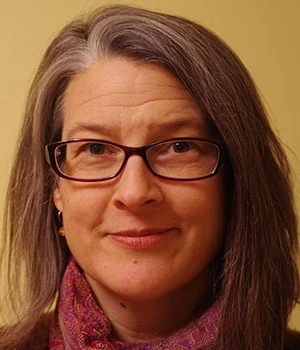
Kristin Sziarto
- Director, L&S Curriculum and Governance
- Associate Professor, Geography
- Affiliated Professor, Urban Studies
Education
- PhD, Geography, University of Minnesota, 2007
- MA, Geography, University of Georgia, 2001
- BA, Theater, Williams College, 1988
Office Hours
In Spring 2022 my drop-in office hours are Wednesdays, 10:30 - 11:30 am.
Courses Taught
- Geog 110 - The World: Peoples and Regions
- Geog 309 - Nationalities and Nations of the World
-
Geog 810/910: Research and Presentation in Geography
- Geog/USP 827- Qualitative Methods
- Geog 905 - Seminar in Biopolitics (Fall 2016)
Research Interests
Professor Sziarto is interested in the relationships among social movements, collective identities, the state, and the spaces of the city. She is especially interested in how social movements develop as alliances – that is, how people with very different interests, identities, dispositions, personal trajectories of learning, and institutional allegiances negotiate their differences to work together to build social movements, and how those movements may also fragment. Within geography she studies these issues in terms of the spatialities of social movements and resistance. She pursues these questions through several projects:
- Her present research on biopolitics and race in Milwaukee investigates discourses circulating among the City’s infant mortality reduction program, nonprofits’ campaigns against teen pregnancy, and legislation on paid sick leave, and how local organizing around health policy has to challenge hegemonic ideas of health, illness, and caregiving.
- Her past work on religion-labor alliances, and current project on community organizing, examine the spatialities of these forms of activism.
- In the Muslim Milwaukee Project, she works with Anna Mansson McGinty (Geography and Women’s and Gender Studies) and Caroline Seymour-Jorn (French, Italian, and Comparative Literature) on collaborative research with local Muslim groups.
- She also studys teaching and learning at the university level, to understand how students’ critical thinking about place and belonging develop in relation to regional and national identities, study abroad experiences, and classroom activities with different kinds of maps.
Selected Publications
Lim, S. , & Sziarto, K. M.(2020) When the illiberal and the neoliberal meet around infectious diseases: an examination of the MERS response.Territory, Politics, Governance, 8(1).
Lim, S. , & Sziarto, K. M.(2020) Resignifying occupation: Territorialization, place, and transgression in the anti-corporatization movement at Seoul National University, South Korea.Territory, Politics, Governance.
Seymour-Jorn, C. , Sziarto, K. M., & Mansson McGinty, A. M.(2018) The American Prophetic Tradition and Social Justice Activism among Muslims in Milwaukee, Wisconsin.Contemporary Islam.
Laliberté, N. , Bain, A. , Lankenau, G. , Bolduc, M. , Mansson McGinty, A. M., & Sziarto, K. M.(2017) The Controversy Capital of Stealth Feminism in Higher Education.ACME. An International Journal for Critical Geographies, 16(1), 34-58.
Sziarto, K. M.(2016) Whose reproductive futures? Race-biopolitics and resistance in the Black infant mortality reduction campaigns in Milwaukee.Environment & Planning D: Society and Space, 35(2), 299-318.
Sziarto, K. M., McCarthy, L. M., & Padilla, N. (2014) Teaching critical thinking in world regional geography through stakeholder debate.Journal of Geography in Higher Education, 38(4), 557-570.
Sziarto, K. M., Mansson McGinty, A. , & Seymour-Jorn, C. (2014) Diverse Muslims in a Racialized Landscape: Race, Ethnicity, Islamophobia, and Urban Space in Milwaukee, WI.Journal of Muslim Minority Affairs, Institute of Muslim Minority Affairs, 34(1), 1-21.
Sziarto, K. M., & Leitner, H. (2010) Immigrants Riding for Justice: Space-time and emotions in the construction of a counterpublic.Political Geography, Political Geography, 29(7), 381-391.
Sziarto, K. M.(2008) Placing Legitimacy: Organizing religious support in a health care workers' contract campaign.Tijdschrift voor economische en sociale geografie (Journal of Economic & Social Geography, 99(4), 406-425.